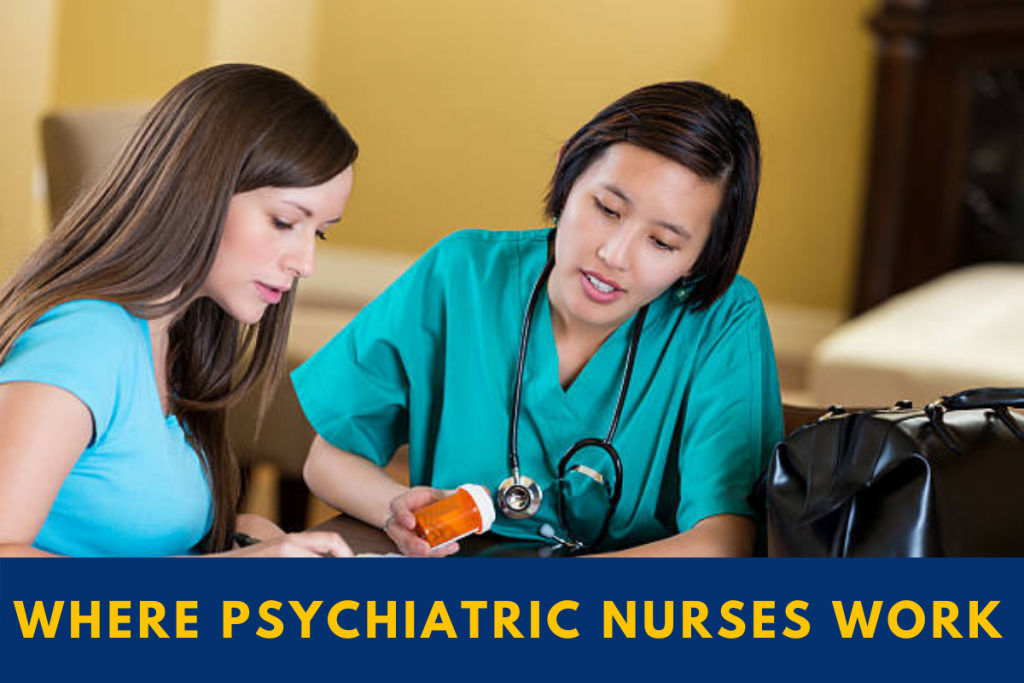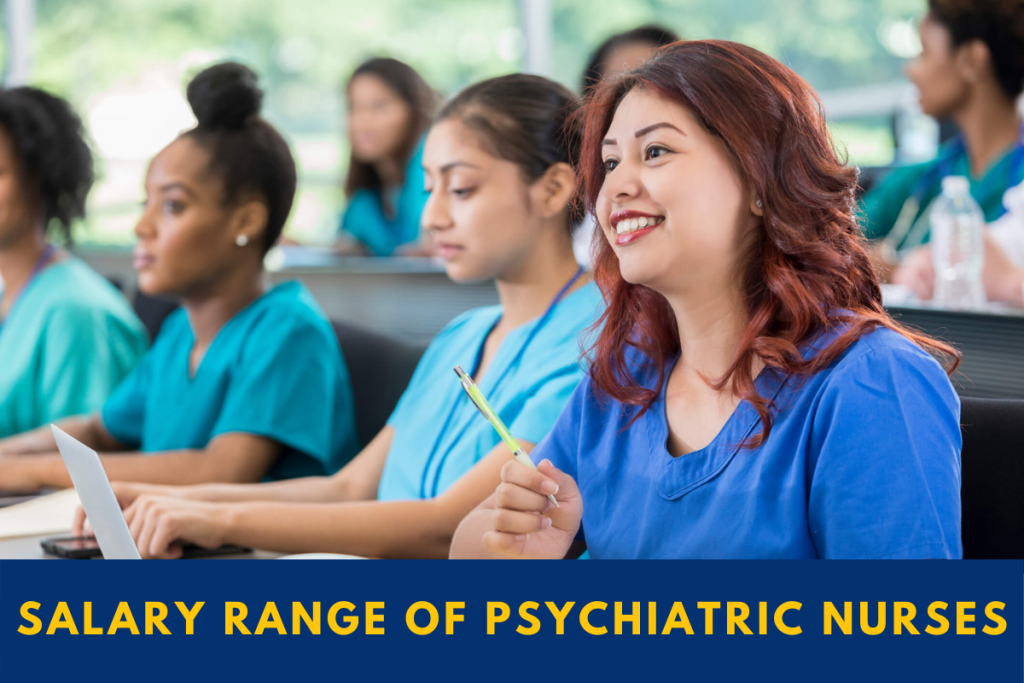Psychiatric nursing is one of the most complex and sensitive field of specialized nursing. It takes an extraordinary type of care to be a mental (psych) nurse. It wasn’t until this generation that people with serious mental issues started seeking psychological treatment. People with mental health issues try rely on psych nurses to manage their complex physical and emotional needs.
The textbook definition of psychiatric nursing is as it goes; “Psychiatric nursing is the branch of nursing concerned with the prevention and cure of mental disorders and their sequel. It employs theories of human behavior as its scientific frameworks and requires the use of self as its art or expression in nursing practice.”
According to the American Psychiatric Nurses Association, psychiatric nurses are specialists in emergency intercession, psychological wellness, drugs and treatments to help patients in curing dysfunctional behaviors as well crisis intervention.
Psychiatric nurses work with patients of all ages, whether it’s children, teens or adults. They are very skilled in treating anxiety, depression, bipolar disorder, schizophrenia, substance abuse etc. Psych nurses not only care for individuals only but also for communities or groups of people as well.
How the Psychiatric Nurses Function
As a major aspect of psychiatric treatment, psychiatric nurses start by talking to new patients to learn about their psychological history, manifestations, and living habits. Psychiatric medical nurses will then assist therapists and psychologists to build up a comprehensive treatment plan for treating the psychological welfare of the patients. Amid treatment, psychiatric nurses may provide mental counseling, help with ordinary tasks like prepping, convey meds, and help families adjust to comprehend the psychological sickness of their respective family members.
On occasion, psychiatric nurses should likewise respond to discomforted patients in a non-compromising way and use de-acceleration methods to enable patients to deal with their distress. Some psychiatric nurses may sort out get-togethers for patients to associate and create social aptitudes for quicker recovery.
Where Psychiatric Nurses Work

Psychiatric nurses are able to discover work openings in various human services and network settings which are concentrated on psychological welfare. Most will end up working in general hospitals, psychiatric specialty hospitals, rehabilitation centers, network psychological well-being centers, and community mental health clinics. Some psychiatric nurses will work in remedial foundations to help treat criminal guilty parties who have been detained to have psychological treatment.
Other psychiatric nurses may likewise look for some kind of employment in educational systems to convey care to kids with emotional or psychological weaknesses. Numerous psychiatric nurses work standard business hours, however, those in inpatient offices sometimes need to work long shifts regularly to ensure 24/7 patient coverage. They may also work in –
- General hospitals
- Psychiatric hospitals
- Home healthcare organizations
- Community health organizations
- Private medical practice
What they do
- Assess the psychological well-being needs of patients
- Concoct treatment anticipates the patient
- Give psychotherapy administrations
- Give individual consideration to the patient
- Give care in coordination with families, specialists and other well-being experts
- Give prescriptions
How to become a Psychiatric Nurse
The pathway toward professions in psychiatric nursing will rely upon which dimension of consideration they wish to offer. Ensured nursing colleagues (CNAs) and authorized handy nurses (LPNs) can work in the emotional wellness field after only one to two years of tutoring.
Be that as it may, most psychiatric nurses have gotten RN licensure in the wake of finishing a two-year degree in nursing (ADN) or four year college education in nursing (BSN). So as to end up in psychiatric-emotional wellness nursing through the ANCC, they’ll have to hold a current RN permit, have two years of all-day work involvement in nursing, and practice somewhere around 2,000 hours in psychiatric consideration.
Nurses who graduate from school to get a Master of Science in Nursing (MSN) can propel their professions further to wind up being Psychiatric-Mental Health Nurse Practitioners (PMHNP) as well.
Generally, psychiatric nursing is a fulfilling, tolerant confronting calling that enables nurses to spend significant time in emotional wellness care to enable patients to manage difficulties one of a kind to psychological maladjustments. In case they’re a hopeful nurse with phenomenal relational abilities, critical thinking capacities, sympathy, and a decent portion of passionate development, turning into a psychiatric nurse could be the ideal specialty for encouraging recuperation in those in need.
Salary Range of Psychiatric Nurses

Psych nurses’ compensations rely upon their dimension of training, long stretches of understanding, size of boss, and where they live and work. In May 2016, the Bureau of Labor Statistics detailed the range for RN pay rates as $47,120 to $102,990. The mean yearly pay for an attendant working in the psychiatric or substance misuse healing center setting was $69,460.
Pay differentials boost nursing pay rates. They are added to their base hourly rate for night or night shifts, charge obligations, or for tutoring new nurses. In some cases, higher pay rates are offered for having a BSN or MSN. Sign-on rewards might be accessible relying upon the interest of nurses.
Furthermore, in some work settings, nurses are qualified for extra time pay. The Bureau of Labor Statistics, reports that in 2016, the mean salary for nurse professionals was $107,460. Furthermore, as indicated by salary.com, mean CNS pay in January 2017 was $98,997 (territory $89,522-$108,428).
Career Outlook for Psychiatric Nurses
The Bureau of Labor Statistics predicts that nursing work will develop at a rate of 16 percent through 2024 – a lot quicker than the normal for all employments. There is a lack of psych nurses, with children of post war American nurses nearing retirement and the developing well-being requests of our maturing populace.
Open mindfulness about emotional wellness is expanding, no uncertainty provoking more individuals to look for help. In 2015, an expected 43.8 million grown-ups in the U.S. (age 18 or more seasoned) were determined to have dysfunctional behavior inside the previous year. This is about 18 percent of Americans, barring issues of substance and liquor misuse, kids, and teenagers.
Obviously, there will be future interest in mental nursing at all levels, especially given the current shortage of qualified nurses.

Leave a Reply